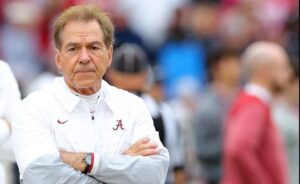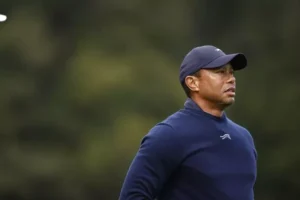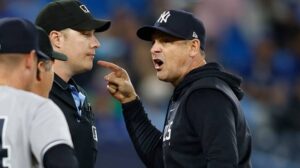OC Nick Sheridan and WR coach JaMarcus Shephard have been hired by Alabama.
On the previous day, Tide manage the game coach Kalen DeBoer made the announcement that Nick Sheridan and JaMarcus Shephard had been hired to oversee the offensive staff of the Alabama Crimson Tide.
Upon the previous day, Nick Sheridan and JaMarcus Shephard were hired by Alabama head football coach Kalen DeBoer to head the team’s offensive line.
While Mathews will be the wide receivers coach, co-offensive coordinator, and assistant head coach, Sheridan will be the head offensive coordinator and players instructor.
“We are thrilled to have Nick and JaMarcus join us at Alabama. They are both fantastic coaches,” DeBoer remarked. They understand our goals on that side of the football field and have familiarity with our offense. At every stage of their careers, they have proved themselves to be outstanding instructors and recruiters, bringing a great deal of passion and energy to their work.
He worked for Indiana University for two years as the offensive coordinator.
Sheridan remarked, “Joining Coach DeBoer at Alabama is an incredible opportunity.” “I’m excited to collaborate with this offensive staff to create a weekly strategy that will position our squad for victory. I recognize the significance of maintaining Alabama’s unrivaled tradition while helping our players progress.
DeBoer disclosed the appointments on Tuesday. Ryan Grubb, who was appointed as the offensive coordinator of the Seattle Seahawks of the NFL, has been assigned to replace Sheridan. Grubb had intended to follow DeBoer from Washington to Alabama.
“Ultimately, we are thrilled to have Nick and JaMarcus join us at Alabama. They are both fantastic coaches,” DeBoer said in a statement. They are familiar with our offensive scheme and the goals we have for that side of the football field. They both have a strong work ethic and energy, and throughout their careers, they have shown themselves to be exceptional instructors and hiring managers.”
In an extensive one-hour speak with and accepting ESPN on the following day Baker showed no pity for the numerous coaches who have gone public with their complaints about the challenges they face in keeping their rosters stable in the new collegiate sports landscape. This new environment allows for player transfers with less restrictions and allows for deals involving names, likenesses, and images, which have been shown to be inducements for players to consider switching organizations.
“Please allow me to possessed conversations with a bunch of coaches who didn’t … walk out on their contracts,” Baker explained. When I discuss this topic with children, one of the things they tell me is that “coaches walk out on their arranges agreements.” “Why not ourselves?”
As a whole, Baker believes that more college students than ever before are switching institutions, which is reflected in the rate of migrations in athletics.
Is there an increase in transfers compared to a decade ago? Yes. When compared to their non-athletic colleagues, do they transfer more? No,” stated Baker. Since they have more information, more facts, and are generally impatient about many things, they transfer less than students who do not participate in student athletics.”
In the midst of several legal challenges to the NCAA’s regulations, Baker, who is about to conclude his first full year as president of the NCAA, and numerous other college sports executives have petitioned Congress for assistance in regaining some control over the future of college sports. A number of the measures and initiatives that Congress has produced contain clauses that would make it more challenging for those who train to make the move.
Not a big fan of that. In response to a question concerning the possibility of a law limiting player mobility and, thus, some of their economic power, Baker stated, “I’m not.”
The first step toward becoming a law is to have a committee vote, which none of those bills have received. Thanks in part to regular talks he has with senators rather than their staff members when he visits Capitol Hill, Baker expressed optimism about the possibility that Congress will support the NCAA.
According to Representative Baker, who was responding he will keep pushing for a bill even if Congress doesn’t approve one before the upcoming election in November. There are several legal issues that could be resolved in the upcoming year that seriously jeopardize the NCAA’s current operational structure. According to Baker, the NCAA will keep pleading with Congress for assistance, even if some of those antitrust cases or initiatives to hire college athletes become successful.







